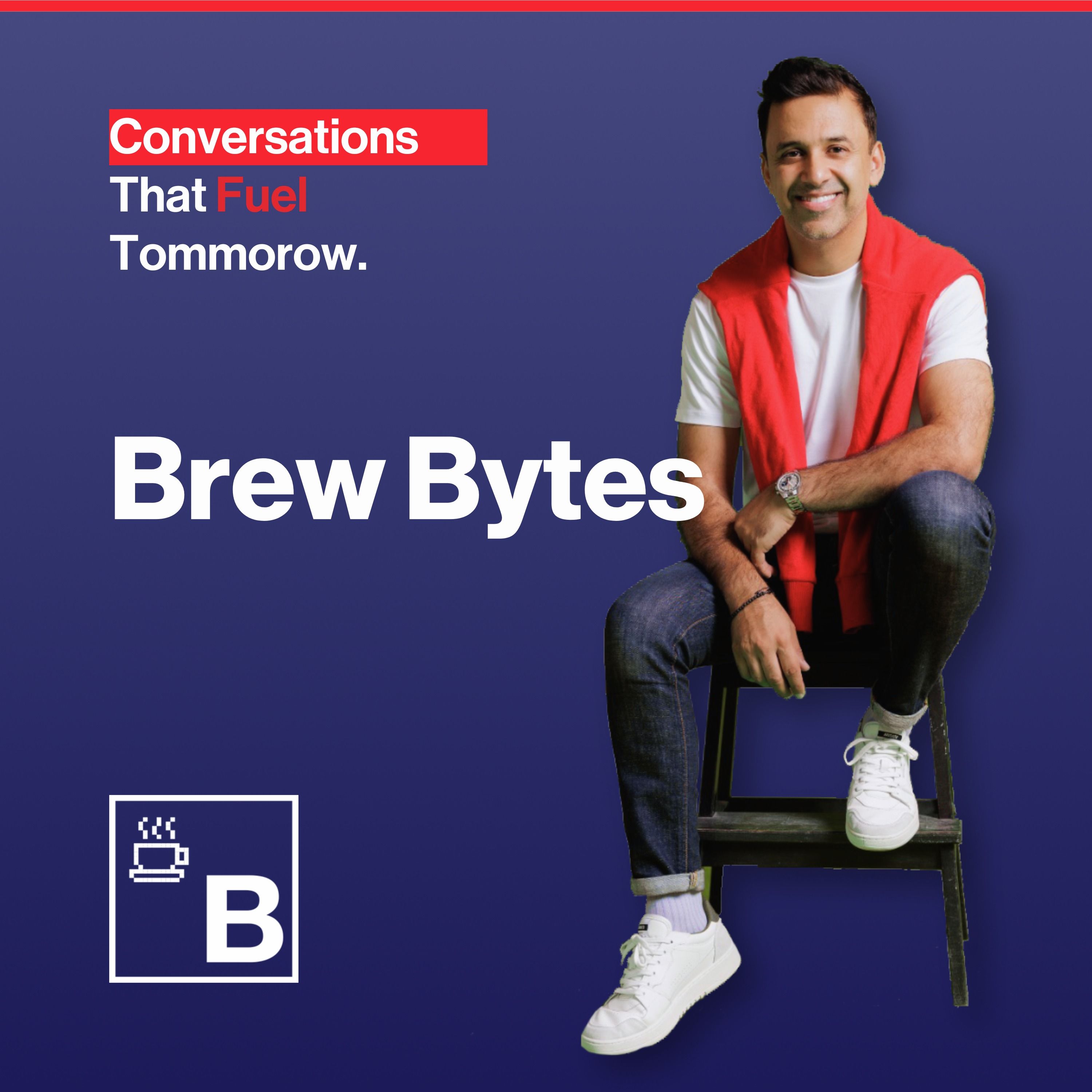
Incongruent
Podcast edited by Stephen King, award-winning academic, researcher and communications professional.
Chester | Dubai | The World.
Correspondence email: steve@kk-stud.io.
Incongruent
ORIGINAL PAPER: Awards P3 - Unlocking the Link between Awards, Pedagogy and Industry Integration
Spill the tea - we want to hear from you!
In this episode we're connecting awards, pedagogy, and industry standards in a way you never thought possible. We won't shy away from the hurdles – the struggle to find relevant literature on industry-organized student award ceremonies and higher education pedagogy. But hey, we're equipped with 'Publish or Perish'. We'll comb through every piece of literature to find valuable insights and themes like academic capitalism and poverty alleviation and inclusion. This is just the beginning of our exciting research journey, and we can't wait to bring you along!
Welcome back, dedicated listeners, to The Incongruent podcast, edited by Stephen King, senior lecturer in media at Middlesex University Dubai. We've been on a captivating journey, exploring the intricate world of student satisfaction within industry-organised competitions.
In our previous episodes, we ventured into the realms of student satisfaction, quality models, and the subtle distinctions between satisfaction and perception of service quality. We discussed how these factors play a pivotal role in student retention, recruitment, and the success of awarding organizations.
Today, in the third part in this ongoing series, we dive deeper into the relationship between student satisfaction and their academic journey.
So, grab your favorite cup of coffee, sit back, and let's embark on this enthralling exploration, as we unveil the crucial link between satisfaction, competitions and student success on The Incongruent podcast.
Chapter 5 - Higher Ed Performance: A Model for Higher Education
Welcome back, dear listeners, to another enthralling chapter in our exploration of student satisfaction within award programs. In our previous episodes, we've ventured through the Serve qual and surf perf models, unearthing the nuances of satisfaction and its critical role in education.
Today, in Chapter 5 of our series, we embark on a deep dive into the Head Perf model by Firdaus Abdullah, a model tailor-made for higher education institutes. And as we journey through this model, we'll unearth some fascinating insights that might just shape the way we look at student satisfaction in awards.
Head perf - Tailoring Satisfaction to Higher Education
Firdaus Abdullah's HEdPERF model is our focus today, and it's a fascinating approach to evaluating satisfaction in higher education. The model is especially relevant when government regulations and academic theory seem to clash.
You see, central bodies, often in charge of holding educational institutions accountable, might rely on SERVQUAL, a model we've previously explored. However, this approach has its limitations, and it doesn't effectively evaluate the performance of institutions.
To illustrate, let's consider a school in an underprivileged area. By SERVQUAL standards, it might be considered failing due to infrastructure deficiencies. But, under the SERVPERF lens, if the teachers are excellent, caring, and inventive, they might be offering students a positive experience that goes unnoticed. The government might penalize the school for low quality, oblivious to the inspiring work happening within.
This misalignment highlights a fundamental issue - the lack of consensus on how to measure satisfaction and quality. It allows leadership teams to cherry-pick the approach they find most suited to their needs, rather than the one that truly addresses the context.
1) Access: "approachability, ease of contact, availability and convenience"
2) Non-academic aspects: Focusing on duties carried out by non-academic staff.
3) Academic aspects: Solely the responsibilities of academics.
4) Reputation: The importance of projecting a professional image.
5) Programme issues: Emphasizing the offering of wide-ranging and reputable academic programs.
6) Understanding: Addressing students' specific needs in terms of counseling and health services.
"Access" emerges as the most crucial dimension in higher education, making it a top priority for management.
The model highlights 41 items for evaluation, each aligned with one of these six dimensions. Notably, three items have cross-dimensional impact:
1) Educated and experienced academicians.
2) Service delivery procedures.
3) Service within a reasonable time frame.
Within the "Access" dimension, three components are deemed especially vital, each with a weight of 0.60 or more:
1) Fair amount of freedom.
2) Easily contacted by telephone.
3) Feedback for improvement.
In a follow-up article (Firdaus, 2005), Firdaus tests his model against SERFPERF and modifies HEdPERF with SERFPERF to see if a compromise is beneficial. The new model, boasting four dimensions and 35 scaled items, intriguingly eliminates "Access."
The conclusion of this study suggests that, at least in higher education, the bespoke HEdPERF model outshines both the general SERFPERF and the hybrid SERFPERF-HEdPERF model. The removal of "Access" as a separate dimension seems to be a critical factor in this superiority.
Armed with insights from SERVQUAL, SERFPERF, and HEdPERF, I'm now encouraged to embark on developing a bespoke AWARDPERF satisfaction model. This model could encompass up to five dimensions and as many as 41 scales, each grounded in a thorough literature review.
But, our journey is far from over. The next step involves understanding the statistical methods required and seeking the right tools and software to bring this model to life.
Chapter 6 - The Hunt for Academic Needles in the Haystack
In this installment, I find myself in a peculiar quest, trying to prove a negative - that there might be little or no academic literature on the connection between industry-organized student award ceremonies and higher education pedagogy. You see, the struggle to unearth relevant sources in this realm has been real, primarily due to the ambiguity surrounding search terms.
Search Term Woes
The term "awards" can be misleading, often equated with qualifications, scholarships, or unrelated accolades. Similarly, "competition" is often linked to commercial aspects rather than pedagogy, while "recognition" is commonly employed in various contexts unrelated to our quest.
So, it's time to adjust the approach, and for that, I turn to ChatGPT to generate more precise search terms:
"industry-organized student award ceremonies" AND "higher education pedagogy"
"student recognition events" AND "pedagogical approaches" OR "teaching methods"
("industry-sponsored" OR "corporate-sponsored") AND "student awards" AND "higher education"
"academic achievement recognition" AND "pedagogical strategies"
("industry-led" OR "corporate-led") AND "student award programs" AND "pedagogical practices"
This initial endeavor 📍 generated mixed results, but it's a start. I understand the limitations but remain committed to exploring every avenue.
The Magic of Publish or Perish
To dive into the scholarly abyss, I turn to Publish or Perish, an invaluable tool for navigating academic databases. With it, I employ the generated terms across various search engines within the software.
However, here's the kicker - only three of ChatGPT's terms show any responses within the keyword search, and none appear when used in the title search. These results reveal the scarcity of literature on the subject.
Out of the 18 initially identified publications, many have not received citations, while some don't even seem to come from academic journals. It's clear there's a lack of existing research directly addressing the topic at hand.
Themes in Existing Literature
A deeper dive into these 18 sources highlights two recurrent themes:
1) Academic Capitalism: This focuses on the impact, both positive and negative, of businesses' involvement in academia.
2) Poverty Alleviation and Inclusion: This theme touches upon financial scholarships and support for students from minority communities.
It's time to regroup, reflect, and prepare for the next phase of this challenging research journey.
Chapter 7 - Seeking Wisdom from the Library
In this chapter, I heed my own advice, which I freely offer to my students when they face research roadblocks: "If you're struggling with your search, don't hesitate to ask our 📍 department librarian." And that's precisely what I did.
Our university library offers an array of advanced search options, enabling me to refine searches based on various criteria, including publication type, open access availability, and date. Armed with my prior search terms and the lessons from ChatGPT, I explore the digital library.
First, I conduct a quick repetition of my past search terms and experiment with ChatGPT's boolean prompts. This endeavor yields a solitary substantial discovery: Kasey Windels and Mark Wilson Stuhlfaut's 2017 paper. However, it appears there might be no other publications building upon their study, according to Google Scholar.
To broaden my scope, I dig deeper into these sources, identifying additional keywords that might align with other authors' intentions. This approach involves stepping into the shoes of other researchers and anticipating the terms they may have used.
One term that emerges from this exercise is "Achievements and awards," which has the potential to yield more fruitful results.
Yet, despite generating a vast amount of content in my searches, applying filter upon filter doesn't lead me to the needle in the haystack. Instead, I find two common themes in the existing literature:
1) Award-Winning Research: This is an exploration of celebrated theoretical knowledge within academic communities, often focused on the winner of the "best paper" for academic research.
2) Case Studies of Competitions: These reports detail how events were organized and who participated, but they often lack a deeper reflection on the impact and significance of these competitions.
📍 Despite the challenge, I'm not giving up. Instead, I'm gearing up for another round of research, hoping for a breakthrough.
Chapter 8 - Illuminating Key Papers in the Darkness
In this final chapter before the upcoming Strategic Communications Conference, I summarize three papers that hold the most relevance to my quest to find academic materials explaining the influence of industry awards on teaching pedagogy.
1. Inquiring Minds Find New Challenges in Mathematics Competitions, Contents, and Events (Thorson, 1999)
This paper, dating back to 1999, delves into the use of competitions to stimulate student interest in mathematics. The key takeaway here is that competitions are not just about winning; they expand students' thinking and reasoning abilities. As a teacher, I echo this sentiment - the journey of problem-solving, whether individually or collaboratively, instills crucial skills and brings immense satisfaction.
2. Robotics Innovations Competition and Conference (RICC): Building Community between Academia and Industry through a University-Level Student Competition (Beach et al., 2010)
This paper highlights a robotics competition that challenges students to find solutions to real-world problems, fostering creativity and innovation. Beyond this, the competition's objective is to bring student work to the attention of industry leaders, a noteworthy initiative for bridging academia and industry. Although it's the reverse direction of my study, it offers insights into industry involvement and why it might fall short of 📍 expectations.
3. Teaching Creativity: Experimental Evidence of Three Strategies for Teaching Industry Standards for Creative Excellence (Windels & Stuhlfaut, 2017)
Here, I find a paper that hits close to home. Focused on the creative industries, it emphasizes the importance of introducing industry standards of creative excellence in the classroom. The concept of a "creative code," driven by shared meanings, values, and practical rules, is at the core. By acknowledging this creative code and participating in an award, students can demonstrate that they've "cracked the code" and are ready for the industry.
And that's the missing link I've been searching for. It's a step towards understanding the connection between awards, pedagogy, and industry standards. I'm excited to delve deeper into this journey and share the final results at the upcoming conference.
Thank you for joining me in this pursuit of knowledge. Stay tuned for the next episode as we continue to navigate the intricate web of academia.

Aayushi Ramakrishnan
Co-host
Arjun Radeesh
Co-host
Imnah Varghese
Co-host
Lovell Menezes
Co-host
Radhika Mathur
Co-host
Sukayna Kazmi
Co-host
Stephen King
EditorPodcasts we love
Check out these other fine podcasts recommended by us, not an algorithm.

The Agentic Insider
Iridius.ai Inc
Brew Bytes
Nadeem Ibrahim
